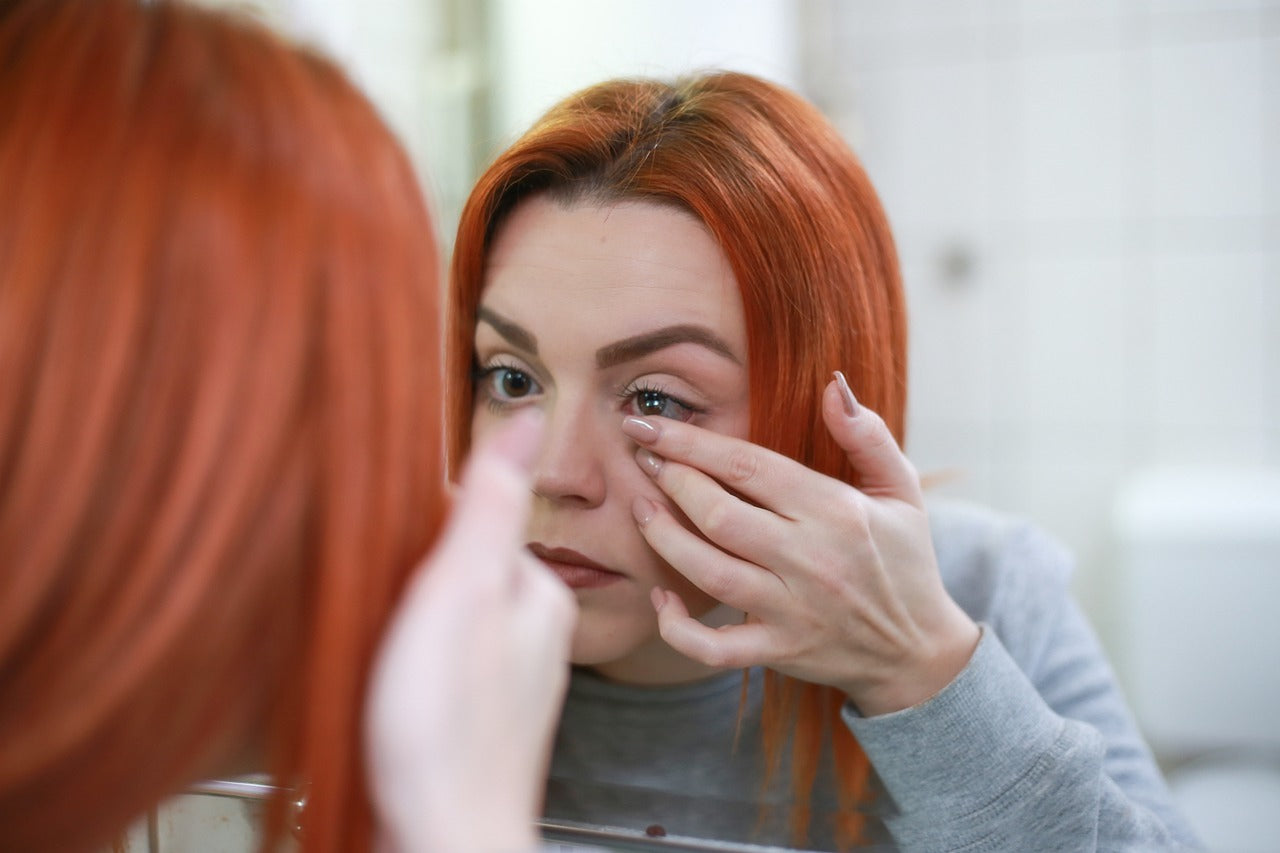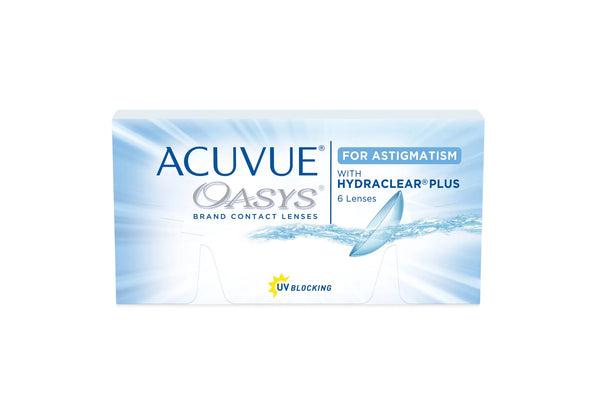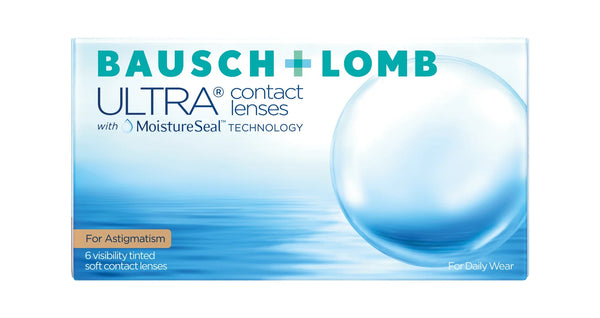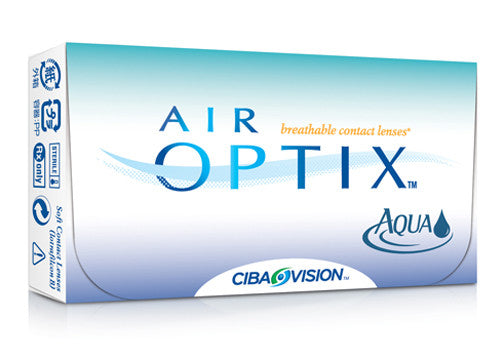
You may be wondering, what are toric contact lenses? These innovative lenses represent a breakthrough in comfort and convenience for individuals with astigmatism.
Unlike regular lenses, toric contact lenses have a unique shape that corrects the different refractive errors caused by astigmatism.
How exactly do they differ from standard contacts? In this guide, we'll answer your queries, walk you through their material composition, the science behind how they work, and much more!
What this article covers:- Toric Contact Lenses: What You Should Know
- Types of Astigmatism Addressed By Toric Lenses
- Frequently Asked Questions (FAQs) About Toric Contact Lenses
Toric Contact Lenses: What You Should Know
Let's delve into the specifics of toric lenses, their types, and how they cater to astigmatism.
What Are Toric Contact Lenses?
Toric contact lenses are specialized corrective lenses designed to fix astigmatism, a condition where the eye does not focus light evenly on the retina, resulting in distorted or blurred vision.
Unlike regular contact lenses, toric lenses have a special "geometric shape" that resembles a donut, with different powers in different meridians.
A central feature of toric lenses is that they remain stable in the eye. This allows for the correct alignment on the cornea. Toric lenses achieve this through various design features that prevent the lenses from rotating, such as weighted areas at the bottom.
One standout product is Acuvue Oasys for Astigmatism. These lenses are known for their exceptional comfort and stability, thanks to the Accelerated Stabilization Design technology, ensuring clear vision throughout the day.
Types Of Toric Lenses
Based on our observations, toric contact lenses are available in various types to accommodate different preferences and lifestyle needs.
Soft Toric Lenses
A common type of toric lens is the soft variation. These are made from a soft, flexible contact lens material (either hydrogel or silicone hydrogel) which allows them to conform to the shape of your eye.
They're designed with unique features to ensure they fit properly. Our research indicates that these include markers to ensure proper placement and orientation on the eye. These markers, usually subtle lines or shapes on the lens itself, are instrumental in guiding wearers to position the lenses correctly.
A popular choice among wearers is the Biofinity Toric contact lens, celebrated for its optimized lens geometry and stable fit.
Rigid Gas Permeable (RGP) Toric Lenses
For those needing sharper vision correction, RGP toric lenses might be the answer. Although they require an adaptation period, they offer high oxygen permeability and are durable. These lenses maintain their shape on the eye, providing clear, defined vision.
Extended Wear Toric Lenses
For individuals seeking the convenience of prolonged wear, extended wear toric lenses are available. Our findings show that these lenses are made from silicone hydrogel, which allows more oxygen to pass through, making them safe for overnight wear for specified durations.
One such product is the Bausch and Lomb ULTRA for Astigmatism, which can typically be worn continuously for up to a week, providing the convenience of not having to remove them before sleep.
Disposable Toric Lenses
In the realm of convenience and eye health, disposable toric lenses lead the pack. These are available in daily contacts, weekly, or monthly disposable options.
Daily disposable toric lenses, like 1-Day Acuvue Moist for Astigmatism, are ideal for busy lifestyles because they require no cleaning or storage.
Types of Astigmatism Addressed By Toric Lenses
Understanding Regular Astigmatism
Regular astigmatism is when the principal meridians of the eye are perpendicular to each other. Based on our observations, toric lenses are effective in these cases, providing the necessary correction for each principal meridian.
Corneal vs. Lenticular Astigmatism
Astigmatism can be due to irregularities in the cornea (corneal astigmatism) or the lens inside the eye (lenticular astigmatism). Toric contact lenses can correct both types, but the specific correction needed is determined during an eye examination.
Frequently Asked Questions (FAQs) About Toric Contact Lenses
Common Queries About Toric Lenses
Can I Wear Toric Contact Lenses While Playing Sports?
Absolutely. Toric lenses are stable on the eye and are excellent for physical activities, including sports. However, it's important to choose the right type of toric lenses that fit well and feel comfortable during these activities.
Do Toric Lenses Require Special Care?
Our findings show that toric contact lenses require the same care as regular contact lenses. It involves cleaning them with the appropriate solution, storing them properly, and following your wear schedule.
How Often Should I Replace My Toric Contact Lenses?
The replacement schedule for toric contact lenses can vary based on the type of lenses you use. Some are disposable and can be replaced daily, while others might last up to a month or more.
Conclusion
In our journey through the world of vision correction, we've uncovered the specifics of what toric contact lenses are and how they stand as a revolutionary solution for individuals with astigmatism. Designed with a torus shape and innovative stability features, these lenses correct blurred vision caused by irregular curvature.
From soft to rigid gas permeable types, toric lenses come in a variety of types, catering to different lifestyle needs.
Reach out to us at Fresh Lens and explore our range of toric contact lenses, and take the first step towards crystal clear vision today!
If you want to learn more, why not check out these articles below:
- When Were Contacts That Change Eye Color Invented
- Fun Facts About Contact Lenses
- Contact Lens Powers
- Who Is Credited with the Invention of Contact Lenses
- How to Read Contact Prescription
- Can You Wear Colored Contacts Over Prescription Contacts
- Is Your Contact Prescription the Same as Your Glasses?
- Can You Wear Prescription Sunglasses with Contacts?
- Best Contacts for Dry Eyes
- Can Dry Eyes Cause Blurry Vision with Contacts?
- Are Daily Contacts Better for Dry Eyes?
- Colored Contacts for Dry Eyes
- Scleral Contact Lenses for Dry Eyes
- All-Around Best Contact Lenses
- Best Color Contact Lenses



































